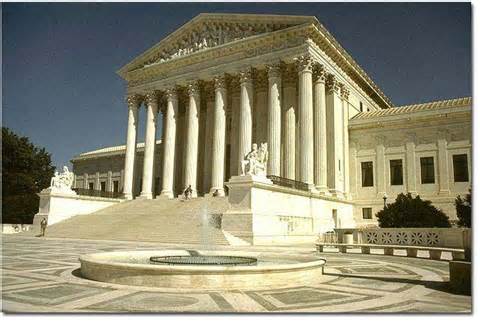This is a continuation of last week’s article by Mat Staver, Liberty Counsel
In 1992, Planned Parenthood v. Casey was argued in the Supreme Court. During that week they voted, and it was a 5-4 vote to overrule Roe v. Wade. For thirty days William Rehnquist was writing the opinion to overrule it. For those thirty days, O’Connor and Justice David Souter lobbied Justice Anthony Kennedy who was part of the majority to overrule it.
After thirty days, they broke through, and he wrote a note to a fellow justice Harry Blackmun who wrote the decision in 1973. Kennedy switched his vote, so the Opinion was taken away from Rehnquist and given to another justice. So Roe v. Wade was upheld, rather than overruled. O’Connor said in that Opinion that even if Roe v. Wade was decided wrongly, we have to uphold it because the power of the Court rests solely in the confidence of the people.
Unlike the executive branch, which enforces the law, or the legislative branch, which enacts the law, she said that the Supreme Court has no power to enforce our law: the only way our orders have enforcement is because the people voluntarily comply. The executive branch must uphold it. Upholding Roe v. Wade was necessary, she argued, to uphold the power of the Court and the confidence of the people that what they do is right. She said in her Opinion that upholding the decision of Roe v. Wade was a necessity to maintain the authority of the Court and the power of the institution.
Historically we know that Thomas Jefferson would not enforce the Alien and Sedition Acts of 1798 that President John Adams had signed. Jefferson wrote a letter to Abigail Adams saying, what gives you the idea that the judges have the final authority to be the arbiters of the law? If that were the case, we would have a despotic branch.
Lincoln advocated disobedience to Dred Scott, and Andrew Jackson advocated disobedience to the banking bill, so it’s not unprecedented that both executives and individuals have said some laws are just and some are unjust.
Martin Luther King’s argument in “Letter from Birmingham Jail” considered just and unjust laws. Just laws are laws in conformity to higher law we have a duty to obey. We also have a duty to disobey laws that are against higher law but be prepared for the consequences of the wrath of the civil authorities. We still cannot obey the unjust laws.
In 2004, same-sex marriage came to Massachusetts. Catholic charities refused to place orphans in same-sex homes, so they stopped doing adoptions. What they should have done, and now what we should do, is to say we are called on a mission and that is to place orphans in homes with moms and dads. We will not run from that calling, but we will also not violate our consciences and The Bible by placing them in a place that is sinful and immoral. If you disagree with it, bring your civil authority after us because we will not voluntarily cease with our calling.
The photographer out in New Mexico, the baker in Oregon, Washington florist Barronelle Stutzman—they are all facing the same thing. We either all stand together, or we hang separately. This is indeed a Bonhoeffer moment. They might be able to pick us off individually, but collectively they can’t. Whenever someone gets targeted, we must gather around them and say no.
In Alabama, the Supreme Court has made a decision to refuse to enforce same-sex marriage (read the decision at LC.org). When you read the decision, you don’t get the impression that the Alabama Supreme Court justices are waiting for the June decision to see what the U.S. Supreme Court decides. They are making their stand now that they will not go along with it, and their minds won’t be changed.
Its one thing to say you will stand; it’s another to withstand the fines and the potential of loss of your entire livelihood (such as Barronelle Stutzman). We must collectively support and stand with them and say we will not cross that line. We need to let them know now where we stand. Tell them now that if they cross that line, they will become an illegitimate institution, that the Supreme Court will lose the respect of the American people and therefore lose its authority.
Next Week: How did we arrive at this place culturally?
Dinner Table Discussion Questions: In what ways can we stand with those who are taking a stand for their beliefs and conscience? Are you prepared for the coming persecution which may result in loss of income, steep fines or even loss of job?

